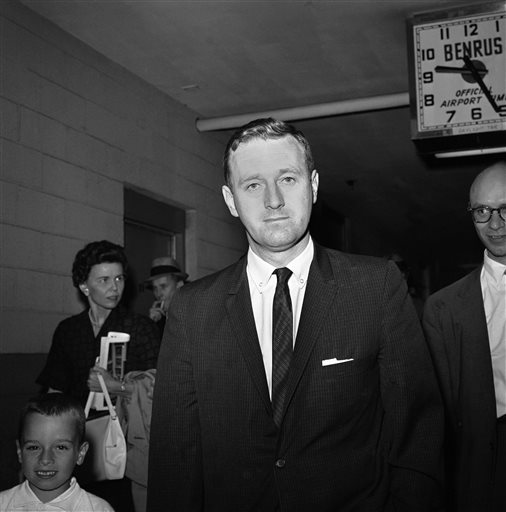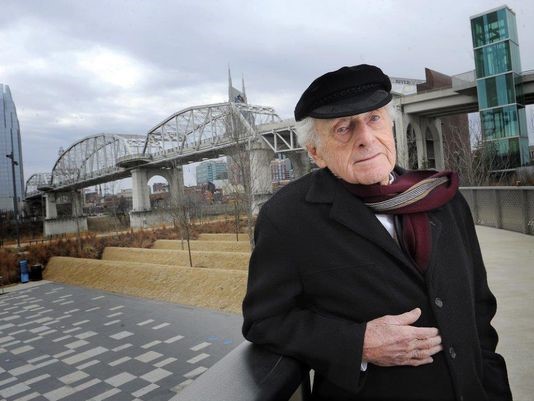John Lawrence Seigenthaler (1927–2014), longtime editor of The Tennessean in Nashville, founded the Freedom Forum’s First Amendment Center at Vanderbilt University in 1991. The center is now part of the Newseum Institute, a nonprofit educational arm of the Newseum in Washington, D.C.
As one of the country’s most passionate and eloquent defenders of civil rights and First Amendment freedoms, Seigenthaler lectured and wrote on such issues as religious liberty, the right of peaceable assembly, freedom of the press, flag burning, the Pledge of Allegiance, and Internet defamation until his death on July 11, 2014.
Born in Nashville, Tennessee, Seigenthaler attended Peabody College before he turned to journalism in 1949 as a cub reporter for The Tennessean. His reports on corruption and violence perpetrated by the Teamsters Union led to a Senate investigation of Jimmy Hoffa, president of the Teamsters, and other union leaders. Seigenthaler was subpoenaed to testify in court hearings during Hoffa’s corruption trials in Tennessee.

In this May 21, 1961 file photo, John Seigenthaler, the Kennedy administration’s chief negotiator with the governor of Alabama during the 1961 Freedom Rides, walks through the airport in Montgomery, Ala. A day earlier, he was attacked and knocked unconscious by a mob of Klansmen in Montgomery, Ala., as he tried to aid a young protester who was being pursued by the rioters. (AP Photo, Reprinted with permission from The Associated Press.)
In 1961, he left the newspaper to serve as administrative assistant for U.S. attorney general Robert F. Kennedy. While serving as President John F. Kennedy’s chief negotiator with the governor of Alabama during the civil rights movement of the early 1960s, Seigenthaler was beaten unconscious by Ku Klux Klan members when he tried to protect Freedom Riders from mob violence.
In 1962, Seigenthaler returned to the Tennessean as editor. During his tenure, the newspaper championed the cause of civil rights and fought for journalists to have open access to state government. In 1982, Seigenthaler became the founding editorial director of USA Today and, after retiring in 1991, founded the First Amendment Center to foster public awareness and appreciation of the First Amendment. With Ken Paulson, president of the First Amendment Center and then editor of USA Today, Seigenthaler hosted a series of First Amendment seminars for the American Press Institute. With Gene Policinski, then the center’s executive director, he lead discussions among journalists and federal judges in a program called Justice and Journalism. He also served on the Constitution Project on Liberty and Security.
A chair of excellence in First Amendment studies was established in his name at Middle Tennessee State University.
In 2005 Seigenthaler became the target of a string of false, anonymous attacks on Wikipedia, the cyberspace encyclopedia. He responded by becoming a leading voice on the need to ensure an accurate flow of information on the Internet, while preserving the vitality of First Amendment freedoms in the new world of media communication.
David L. Hudson, Jr. is a law professor at Belmont who publishes widely on First Amendment topics. He is the author of a 12-lecture audio course on the First Amendment entitled Freedom of Speech: Understanding the First Amendment (Now You Know Media, 2018). He also is the author of many First Amendment books, including The First Amendment: Freedom of Speech (Thomson Reuters, 2012) and Freedom of Speech: Documents Decoded (ABC-CLIO, 2017). This article was originally published in 2009.

